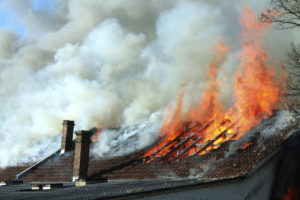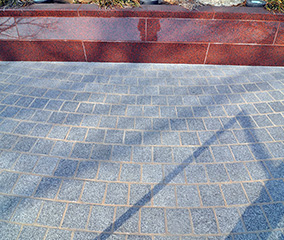
Free burning and slow-burning are two types of chimney fires.
When was the last time your chimney was professionally inspected and maintained? Your chimney is a vital feature in your home, particularly during winter. While chimneys do provide a chance for a warm and cozy fire, they can also cause dangerous chimney fires without proper attention. This article will explain the causes of chimney fires and how to prevent them.
What are the 2 Types of Chimney Fires?
Free burning and slow-burning are two types of chimney fires. They can both destroy a whole home. Free burning chimney is often noticeable because it produces loud cracking sounds and leaves a hot, burning smell. In some cases, the fire flies out of the top of the chimney and can provoke an explosion seen and heard by nearby neighbors.
In contrast, slow burning chimney fires are not as visible or loud, but they can still cause damage. If there are flammable features near the chimney, the high heat can move and spread the fire to other areas in your home. Fortunately, you can prevent chimney fires by completing maintenance.
What Causes Chimney Fires?
Moreover, creosote is the primary cause of chimney fires. Creosote is a highly flammable chemical released by fireplace wood, and your chimney’s job is to lift these toxins out of your home. In addition, multiple factors might increase creosote build-up in your chimney:
- Burning specific types of wood or wood that still retains moisture and has not dried out.
- When smoke spends a significant time in the flue and builds up since air supply is limited within the chimney.
- When chimney temperatures are cooler than usual.
Furthermore, several types of creosote can gather in the same chimney, and it’s still combustible regardless of the form. Tossing items like tinsel or wrapping paper into the fire will enhance the chance of a spark going up into the flue where the creosote awaits and crumble.
How Do You Prevent Chimney Fires?
The right masonry contractor can prevent chimney fires by inspecting your chimney. There is an opportunity for a fire to spark when you light up your fireplace if there are remaining left over from the previous winter. Minimizing creosote build-up will reduce your risk for potential chimney fires. Another way of preventing chimney fires is by burning clean, matured wood.
CONTACT DEL PRETE MASONRY TODAY!
Whether you are ready to start your next masonry project or are still hesitant and have questions, Del Prete Masonry is here to help. We have the experience and expertise to get it right the first time. Questions? Want to visit some of our residential or commercial projects? Ready to set up a consultation? Feel free to give us a call at 410-683-0650 or visit us online. We are happy to serve Baltimore City and County, Harford County, Carroll County, Anne Arundel County, and Howard County. To see examples of our work and to keep up with our new and exciting projects, be sure to follow us on Facebook, Twitter, and Pinterest
Tags: chimney repair, crumbling brick chimneys, masonry chimney





























